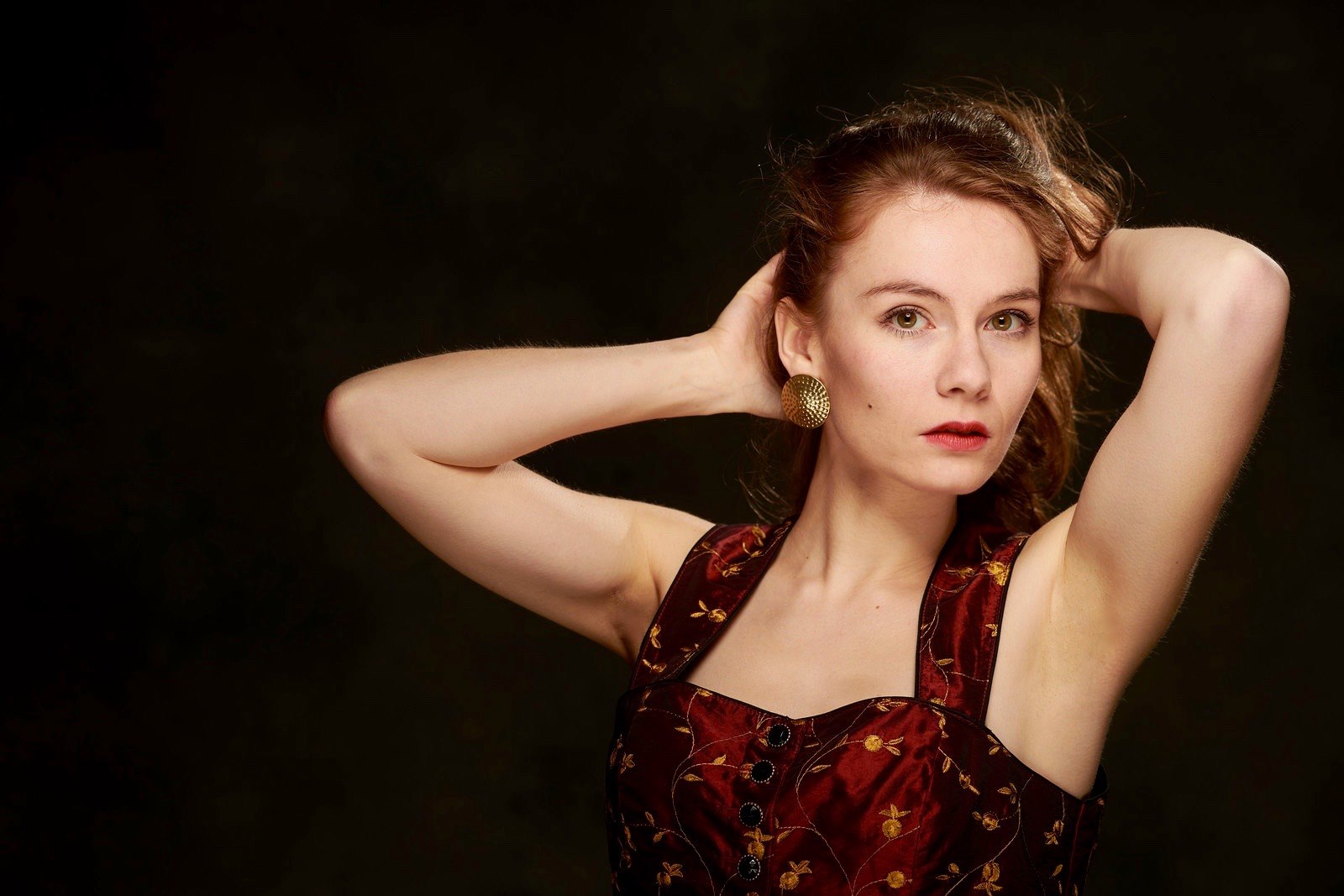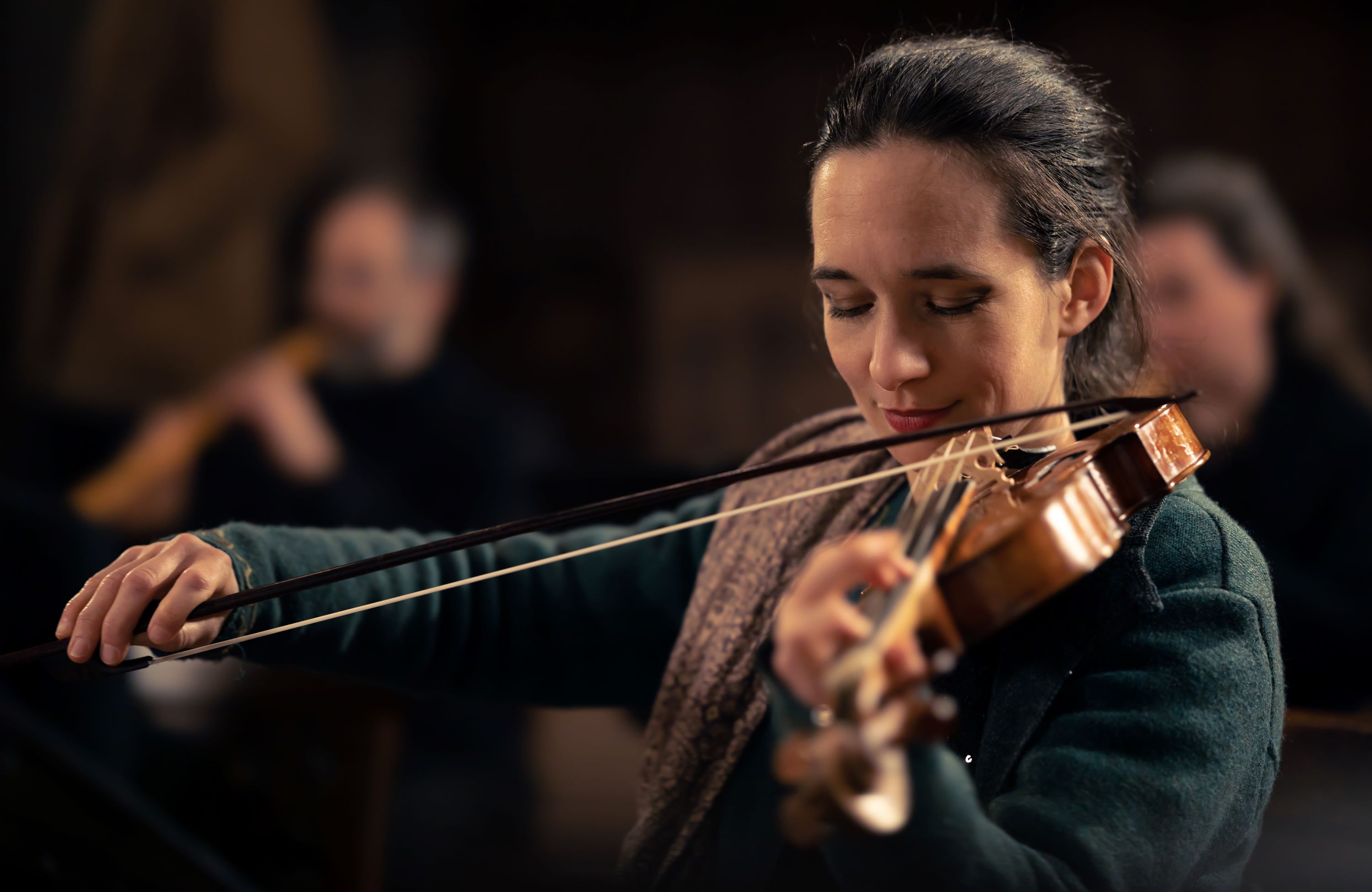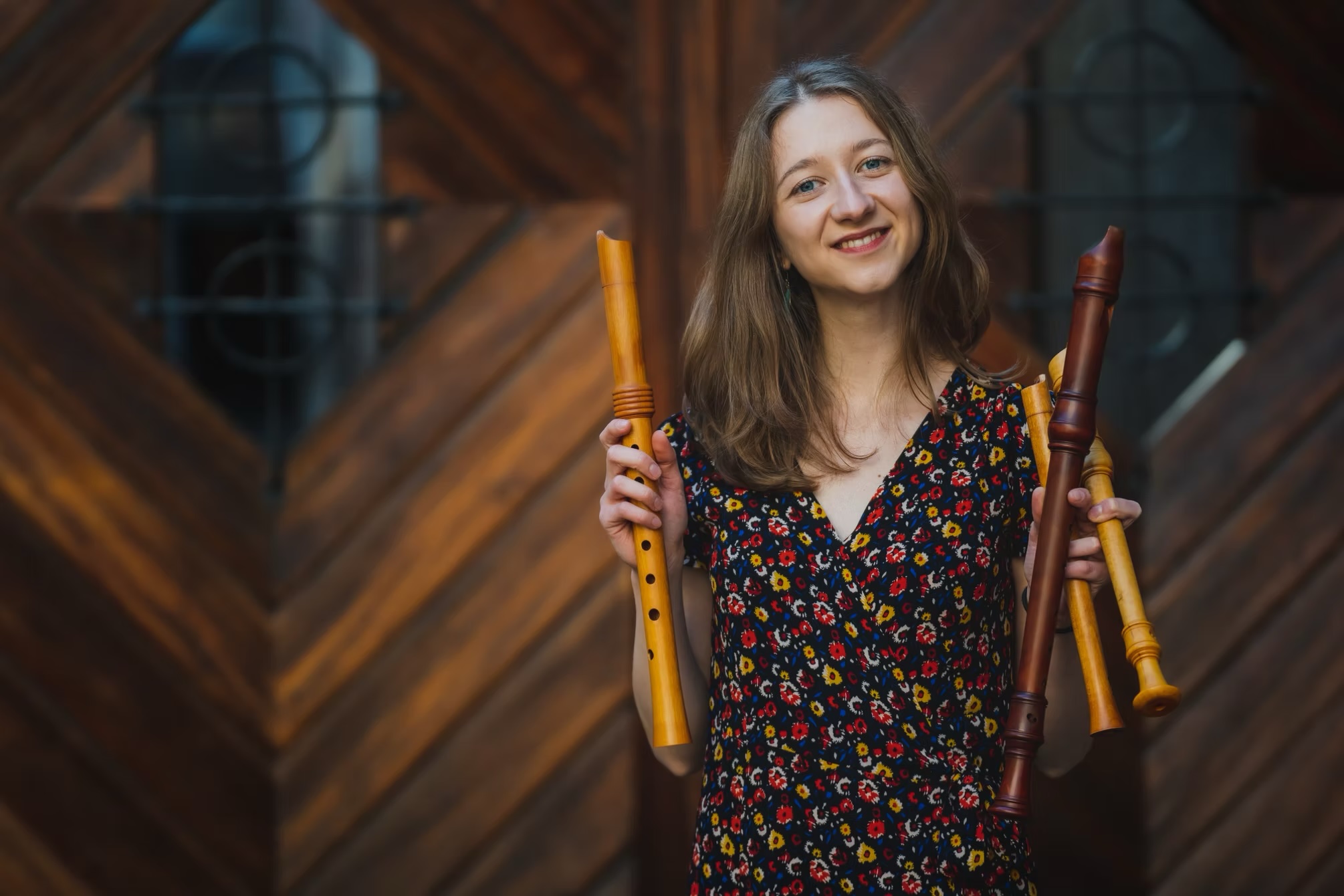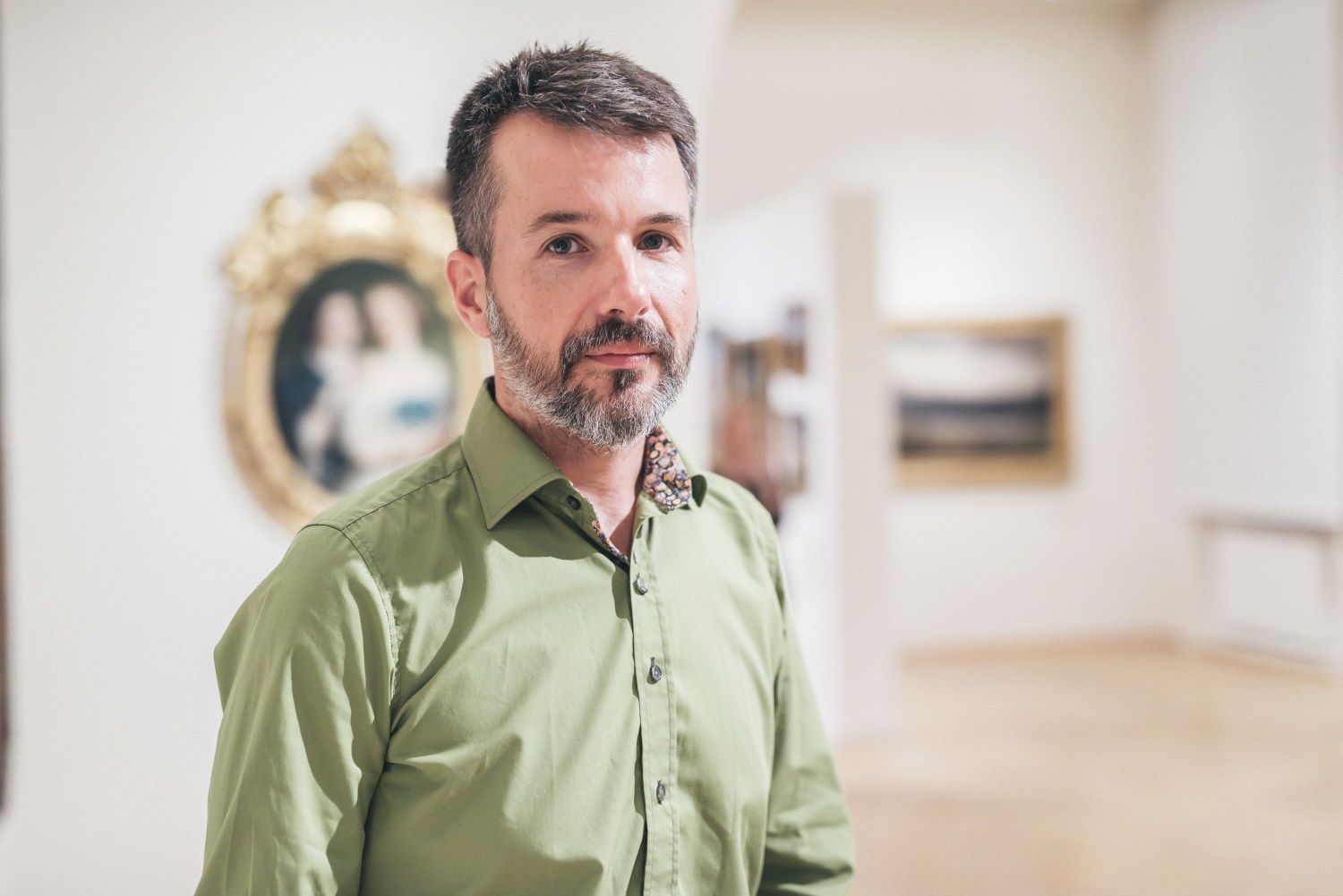Saturday, September 20
Opeka Castle, 5:00 p.m.
Musica Cubicularis
Helena Bregar, soprano
Maruša Brezavšček, recorder, baroque bassoon
Mojca Gal, violin, baroque dance
Domen Marinčić, viola da gamba
Tomaž Sevšek, harpsichord
Louis-Nicolas Clérambault
L’Isle de Délos (The Island of Delos)
(Cantates françoises, Livre IIIe, 1716)
Prelude
Air
Air de Musette
Air tendre
Recitatif
Air
François Couperin
Le Rossignol en Amour (The Nightingale in Love)
(Troisième Livre de Pièces de Clavecin, 1722)
Marc-Antoine Charpentier
Sans frayeur dans ce bois (Without fear in this wood) /Chaconne/
François Couperin
Sarabande (Tendrement/Nježno/Tenderly)
Chaconne (Légère/Lagano)
(Les goûts-réunis, Treizième Concert, Tastes-reunited, 13th Concert, 1724)
Gaspard Le Roux
Suite II in D Major
(Pièces de clavessin, 1705)
Allemande grave
Courante
Sarabande
Gavotte en rondeau
Michel Pignolet de Montéclair
La bergère (The shepherdess)
(3e livre de cantates, 1728)
Air – Recitatif – Air
Michel Richard Delalande
Passacaille ou Grande Pièce
(Simphonies pour les soupers du Roy, Symphonies for the King's suppers,
Première Suite)
Since its founding in 2004, the ensemble Musica Cubicularis has been dedicated to the performance of early music on period instruments. Its programmes often feature lesser-known or previously unpublished works, including opera arias from the archives of the Counts of Attems in Slovenska Bistrica, motets and sacred dialogues from the archive of the Koper Cathedral, music from the Franciscan monastery in Novo Mesto, concertos from the Ptuj collection, Renaissance music dedicated to members of the Khisl family, and repertoire once kept in the archive of the Ljubljana Cathedral. The ensemble has performed in Slovenia, Austria, Italy, Germany, Croatia, the Czech Republic, Spain, and Switzerland. It collaborates with both Slovenian and international artists, including renowned specialists such as Manfredo Kraemer, William Dongois, María Cristina Kiehr, and Edoardo Torbianelli. In late 2021, the ensemble recorded a CD in Sweden featuring motets and instrumental works by Isaac Posch.
Polish-Slovenian soprano Helena Bregar studied at the Academy of Music in Bydgoszcz and graduated from the Pôle Supérieur Paris Boulogne-Billancourt under Isabelle Poulenard. She has sung in operas by W.A. Mozart, G. Rossini, A. Campra, F. Cavalli, and L. Rossi, and has appeared at the Philharmonie de Paris and the Cité de la Musique. She collaborates with ensembles such as Compagnie La Tempête, Flores Myrtae, Musiciens de Saint-Julien, and Vox Cantoris, and leads her own ensemble, La Sensible. She is also active in traditional Slavic singing, including as a soloist with the ensemble Kapela OldNova. Her artistic interests extend to alternative theatre and Baroque dance.

Mojca Gal is a violinist, dancer, and choreographer. She studied Baroque violin with Amandine Beyer and historical dance with Barbara Leitherer at the Schola Cantorum Basiliensis. She continued her training with Deda Cristina Colonna, Christine Bayle, Marie-Geneviève Massé, and Gilles Poirier. She leads her own ensemble, Ad Fontes, and collaborates with ensembles such as Freitagsakademie Bern, Arabesque, and Odyssée. She studied ballet according to the Cecchetti method with Penelope Robinson-Debatin and is currently continuing her training with Canadian choreographer Edmund Fairfax.

Maruša Brezavšček is equally dedicated to both early and contemporary music for the recorder. In recent years, she has also increasingly established herself as a performer on the Baroque bassoon and dulcian. She studied at the Schola Cantorum Basiliensis and the Mozarteum University in Salzburg, participated in an exchange program in Barcelona, and pursued further training in Brescia. She currently teaches recorder at the Academy of Music in Ljubljana and lives in Basel. She has received numerous awards as a soloist and chamber musician. She is a co-founder of the ensembles Duo Decima (contemporary music), Ensemble Bastion (Baroque music), and Ensemble Pampinea (medieval music).

Domen Marinčič performs across Europe, as well as in the USA, Canada, China, Korea, and Vietnam. He has taken part in the recording of forty albums for labels such as Accent, BIS, Harmonia Mundi France, and Sony/DHM. In recent years, he has led orchestral projects in Slovenia, Croatia, and Finland, including performances of oratorios by A. Scarlatti, A. Stradella, and B. Pasquini, as well as the Requiem by Jean Gilles. As a guest lecturer, he regularly teaches at music academies in Venice, Munich, Detmold, Bremen, Essen, Freiburg, Basel, Helsinki, Salzburg, Linz, and Vienna. Since autumn 2021, he has been a professor at the University of Music and Theatre in Hamburg.
Tomaž Sevšek studied organ with Zsigmond Szathmáry and harpsichord with Robert Hill at the University of Music in Freiburg. He continued his training at the Eastman School of Music in Rochester (USA) with David Higgs and Arthur Haas. He performs in Slovenia, Germany, Austria, Italy, France, Spain, Croatia, and Switzerland, and collaborates with numerous international ensembles and orchestras. He has given concerts on important historical instruments, including the oldest organ in the world in Sion, Switzerland. He has a special interest in the clavichord and the forgotten instrument known as the French art harmonium.

